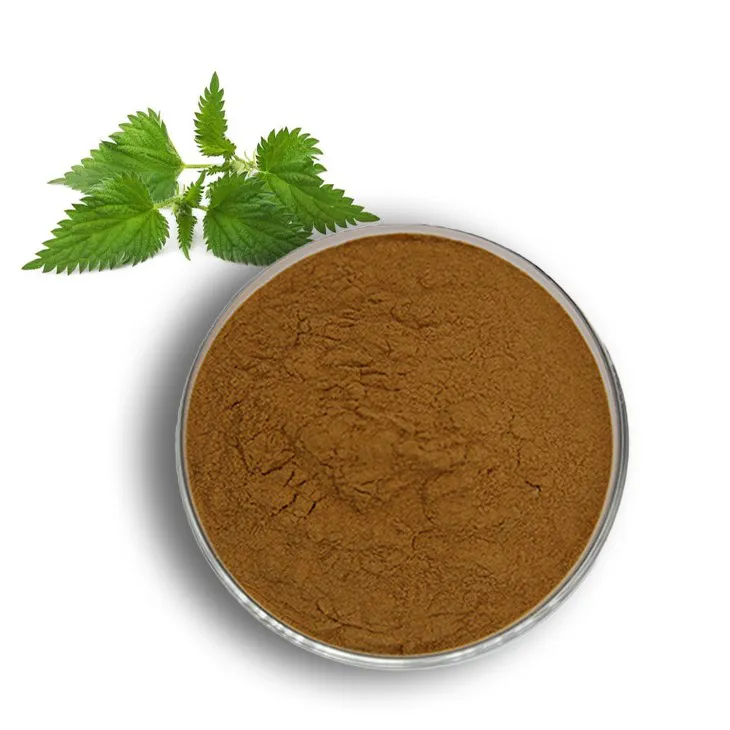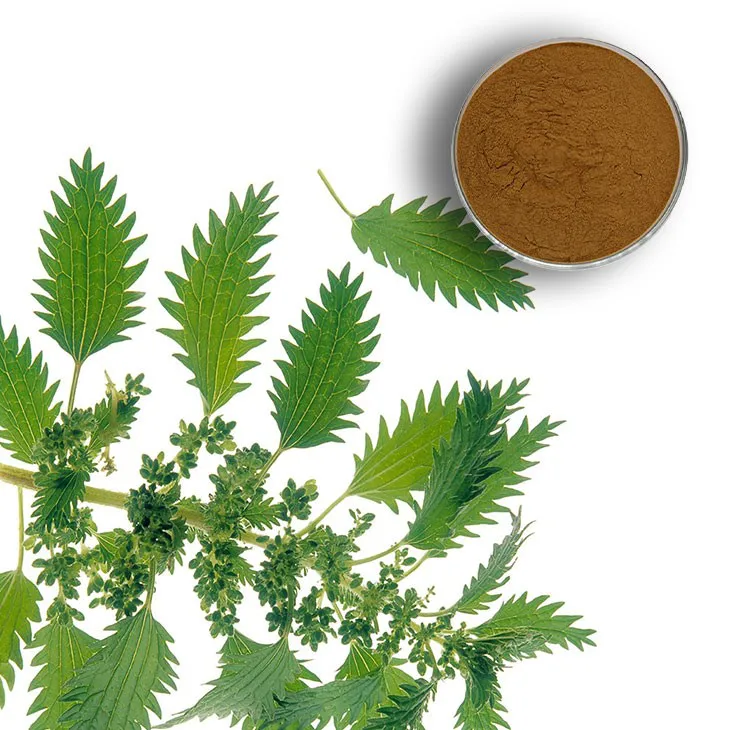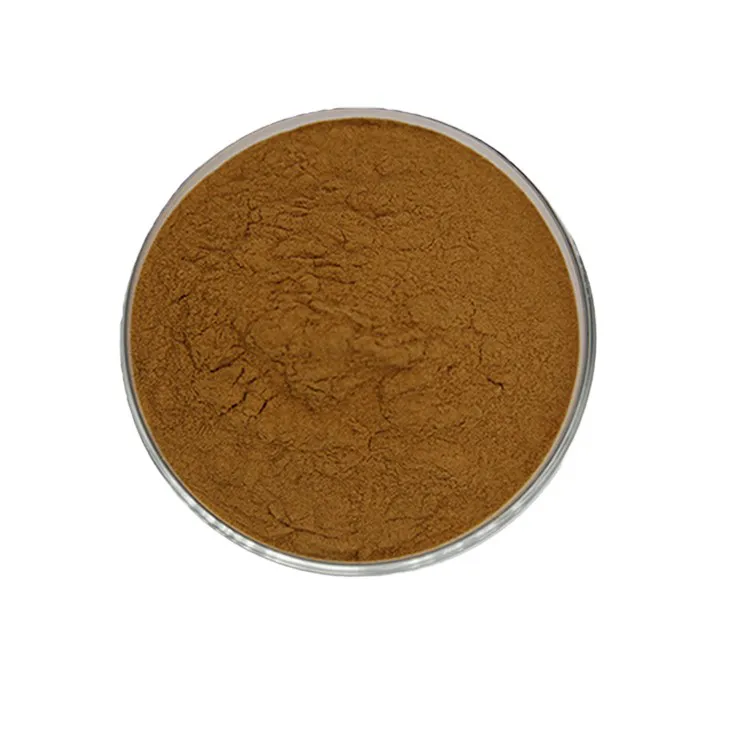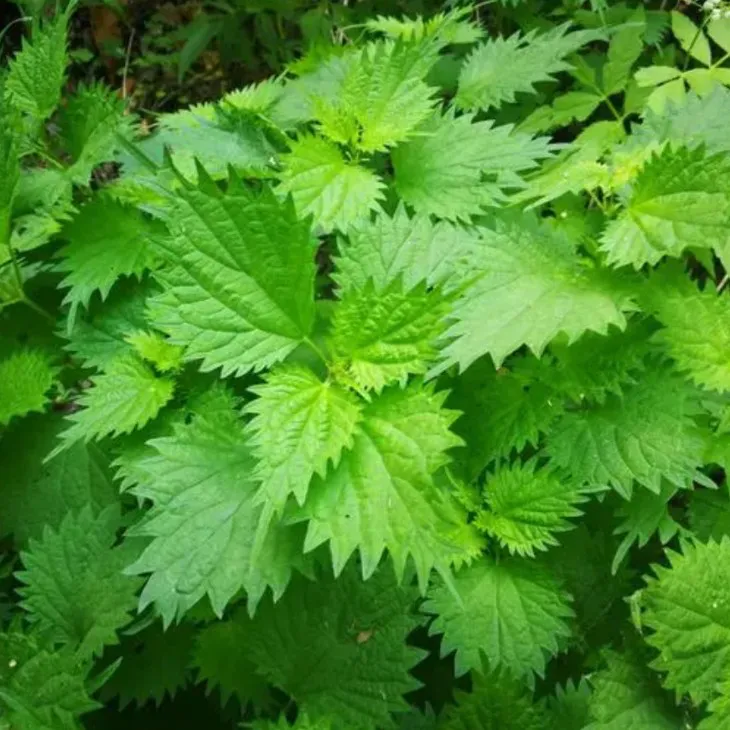- 0086-571-85302990
- sales@greenskybio.com
Unraveling the Chemistry of Nettle Root Extract: Active Ingredients and Their Roles
2024-07-03

1. Introduction
Nettle Root Extract has emerged as a subject of great interest in recent years, spanning multiple domains such as medicine, natural health, and scientific research. The plant from which the root extract is derived, the stinging nettle (Urtica dioica), has a long history of use in traditional medicine systems across the globe. This article aims to provide an in - depth exploration of the chemistry of Nettle Root Extract, with a particular focus on its active ingredients and the roles they play in various physiological processes.

2. The Active Ingredients in Nettle Root Extract
2.1 Lignans
Lignans are a significant group of compounds found in nettle root extract. These are polyphenolic substances that possess a unique chemical structure. Nettle root is known to contain secoisolariciresinol diglucoside (SDG), which is one of the most studied lignans in this context. SDG has been shown to have antioxidant properties. Antioxidants are crucial as they help in neutralizing free radicals in the body. Free radicals are unstable molecules that can cause damage to cells, DNA, and proteins, leading to various health problems such as premature aging, cancer, and heart disease. By scavenging these free radicals, SDG and other lignans in nettle root extract contribute to overall cellular health.
2.2 Sterols
Nettle root extract also contains sterols, which play important roles in the body. Beta - sitosterol is one of the prominent sterols present in nettle root. It has been associated with cholesterol - lowering effects. Cholesterol management is a key aspect of cardiovascular health. High levels of low - density lipoprotein (LDL) cholesterol, often referred to as "bad" cholesterol, are a risk factor for heart disease. Beta - sitosterol in nettle root extract is thought to interfere with the absorption of cholesterol in the intestine. This mechanism helps in reducing the overall cholesterol levels in the blood, thereby potentially reducing the risk of heart - related problems.
2.3 Polysaccharides
Polysaccharides are another important class of active ingredients in nettle root extract. These complex carbohydrates have immunomodulatory effects. They can influence the immune system by interacting with immune cells such as macrophages and lymphocytes. For example, certain polysaccharides in nettle root extract may enhance the activity of macrophages, which are responsible for engulfing and destroying foreign pathogens. This immune - enhancing property can be beneficial in fighting off infections and maintaining overall immune system health.

3. Roles of Active Ingredients in Health
3.1 Anti - inflammatory Effects
One of the notable roles of the active ingredients in nettle root extract is their anti - inflammatory effect. Inflammation is a natural response of the body to injury or infection, but chronic inflammation can lead to various diseases. Lignans, sterols, and polysaccharides in nettle root extract all contribute to reducing inflammation. Lignans, with their antioxidant properties, can help in reducing oxidative stress, which is often associated with inflammation. Sterols may also play a role in modulating the body's inflammatory response by influencing cell signaling pathways related to inflammation. Polysaccharides can interact with immune cells to regulate the production of inflammatory mediators such as cytokines. By reducing inflammation, nettle root extract may be beneficial in conditions such as arthritis, where chronic inflammation of the joints is a major problem.
3.2 Hormonal Regulation
Nettle root extract has also been associated with hormonal regulation, especially in relation to male hormones. Some of the active ingredients, such as lignans, may have an impact on androgen levels. Androgens are male sex hormones, and maintaining their proper balance is important for male health. There is evidence to suggest that nettle root extract may help in cases of benign prostatic hyperplasia (BPH), a condition where the prostate gland enlarges. It is thought that the active ingredients in nettle root extract can interact with hormonal receptors in the prostate gland, modulating the effects of androgens and potentially reducing the growth of the prostate tissue. However, more research is needed to fully understand the mechanisms underlying this hormonal regulation.
3.3 Other Health Benefits
- Urinary Tract Health: Nettle root extract may have benefits for urinary tract health. Some of its components may help in reducing the symptoms of urinary tract infections by promoting the elimination of bacteria from the urinary tract. Additionally, it may also have a diuretic effect, which can increase urine production and help in flushing out toxins from the body.
- Hair and Skin Health: The antioxidant and anti - inflammatory properties of nettle root extract can also be beneficial for hair and skin health. It may help in reducing skin inflammation, which can be useful in conditions such as eczema and psoriasis. For hair, it may promote hair growth by improving blood circulation to the scalp and providing essential nutrients.
- Digestive Health: Polysaccharides in nettle root extract can have a positive impact on digestive health. They can help in maintaining the balance of gut microbiota, which is essential for proper digestion and absorption of nutrients. By interacting with the gut immune system, they can also protect against infections in the digestive tract.

4. Scientific Research on Nettle Root Extract
- Over the years, numerous scientific studies have been conducted on nettle root extract. These studies have aimed to understand the chemical composition of the extract, as well as its pharmacological effects. For example, in vitro studies have been carried out to investigate the antioxidant activity of lignans in nettle root extract. These studies have shown that the lignans can effectively scavenge free radicals in a laboratory setting.
- Clinical trials have also been performed to evaluate the efficacy of nettle root extract in treating various conditions. In the case of BPH, some clinical trials have reported positive results. However, the results have been somewhat inconsistent, with some studies showing significant improvement in symptoms, while others have not. This may be due to differences in study design, patient populations, and the dosage and formulation of the nettle root extract used.
- Research is also ongoing to explore the potential of nettle root extract in other areas, such as its use in cancer prevention. Some preliminary studies have suggested that the antioxidant and anti - inflammatory properties of the extract may have a role in preventing cancer, but more in - depth research is required to establish a definitive link.

5. Conclusion
In conclusion, nettle root extract contains a variety of active ingredients, including lignans, sterols, and polysaccharides, which play diverse and important roles in health. From anti - inflammatory effects to hormonal regulation and potential benefits in various other aspects of health, nettle root extract shows great promise. However, while there has been significant scientific research on this natural remedy, more studies are needed to fully understand its mechanisms of action, optimize dosages, and ensure its safety and efficacy. As interest in natural remedies continues to grow, nettle root extract is likely to remain a subject of intense scientific investigation, offering potential new avenues for the treatment and prevention of various diseases.
FAQ:
What are the main active ingredients in nettle root extract?
The main active ingredients in nettle root extract are lignans, sterols, and polysaccharides.
How do lignans in nettle root extract contribute to health?
Lignans in nettle root extract may contribute to health in several ways. They are known to have antioxidant properties, which can help protect cells from damage. Additionally, lignans may play a role in hormonal regulation, potentially influencing estrogen metabolism.
What is the role of sterols in nettle root extract?
Sterols in nettle root extract may have anti - inflammatory effects. They can also interact with cell membranes and potentially affect various cellular functions related to health.
How do polysaccharides in nettle root extract function?
Polysaccharides in nettle root extract may play a role in immune modulation. They can also contribute to the overall structure and function of the plant extract, and potentially have prebiotic - like effects in the gut.
Why is nettle root extract of interest in the field of natural remedies?
Nettle root extract is of interest in the field of natural remedies because of its various active ingredients and their associated health - promoting effects. These include anti - inflammatory, hormonal regulatory, and immune - modulating properties, which can potentially be used to address a range of health issues without the use of synthetic drugs.
Related literature
- The Chemical Composition and Bioactivity of Nettle Root Extract"
- "Active Ingredients in Nettle Root: A Comprehensive Review of Their Roles in Health"
- "Nettle Root Extract: Uncovering the Chemistry behind Its Therapeutic Potential"
- ▶ Hesperidin
- ▶ citrus bioflavonoids
- ▶ plant extract
- ▶ lycopene
- ▶ Diosmin
- ▶ Grape seed extract
- ▶ Sea buckthorn Juice Powder
- ▶ Beetroot powder
- ▶ Hops Extract
- ▶ Artichoke Extract
- ▶ Reishi mushroom extract
- ▶ Astaxanthin
- ▶ Green Tea Extract
- ▶ Curcumin Extract
- ▶ Horse Chestnut Extract
- ▶ Other Problems
- ▶ Boswellia Serrata Extract
- ▶ Resveratrol Extract
- ▶ Marigold Extract
- ▶ Grape Leaf Extract
- ▶ blog3
- ▶ blog4
- ▶ blog5
-
Lemon Balm Extract
2024-07-03
-
White Peony Extract
2024-07-03
-
Ginseng Root Extract
2024-07-03
-
Mangosteen extract powder
2024-07-03
-
Tamarind extract powder
2024-07-03
-
Green Tea Extract
2024-07-03
-
Longan Extract
2024-07-03
-
Berberis aristata Extract
2024-07-03
-
Garcinia Cambogia Extract
2024-07-03
-
Curcuma Longa Extract/Turmeric extract
2024-07-03





















